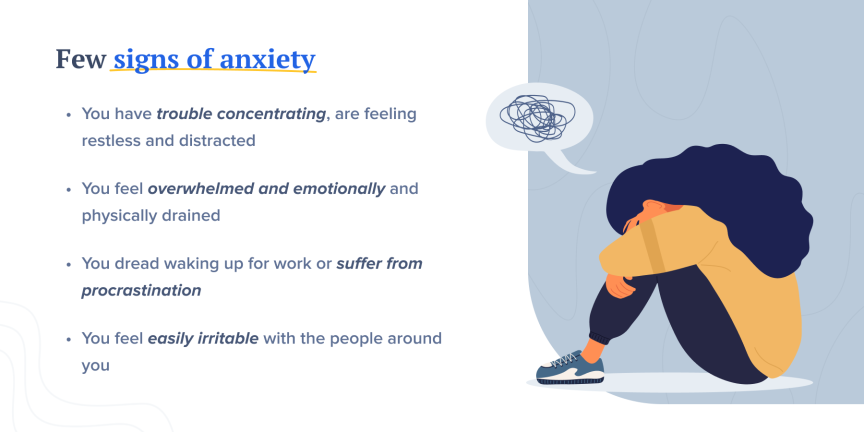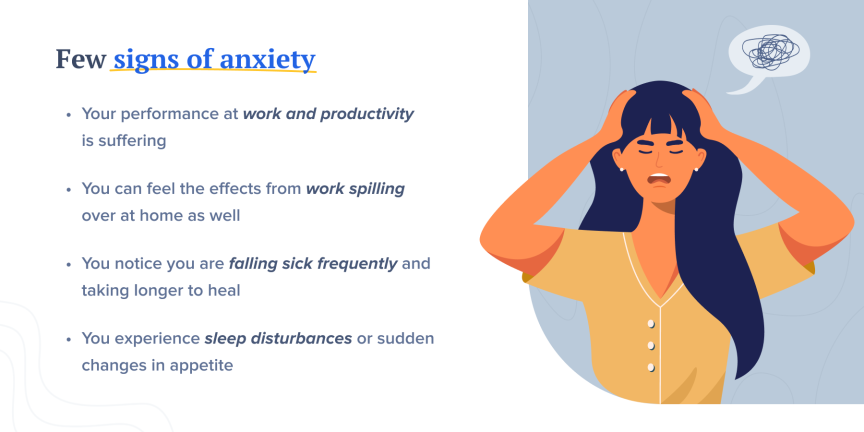Learn why leading HR professionals trust ekincare! Explore Now

Anxiety in the workplace is a very common occurrence. This makes sense: we work long hours, have a lot of responsibilities, and there are a lot of deadlines and expectations to meet. All these factors can take a toll on our mental well-being.
However, just because it’s common doesn’t mean it is good for us. Let’s learn how to cope with workplace anxiety effectively.
To begin with, look out for signs of anxiety. Check to see if you can relate to any or all of these common symptoms:


If you experience any of these, do not fret. Anxiety is a state of mind that can be reduced with some simple changes.
Here are some things to remember to help you cope with feelings of anxiety at work:
a) Press pause and listen - When you start to feel anxious, learn to stop for a moment or two and listen to your senses: Do you feel some tension in your muscles? Is your heart beating fast? Your body’s response to anxiety can teach you a great deal: your triggers, assessing whether you need to keep working or take a mental health day and address the feeling.
b) Do something physical - Refrain from sitting in one place and position throughout your workday. Physical movement is an excellent outlet for anxious energy. Exercise in any form – sports, dance, yoga, walking around, even just stretching – releases endorphins that leave you feeling good and energize you for the rest of the day.
c) Don’t box yourself in - Many of us turn to withdraw from people and things the more anxious we feel, but it is essential not to isolate yourself when you’re going through a hard time. You can actually turn to a trusted friend or colleague. You may be surprised what a positive effect a dose of connection and humour can have on your state of mind.
d) Practice self-care - Learn to recognize when you are stretched too thin and need to re-center – and prioritize it. When you are feeling under a lot of pressure, switch off from work - at least for a while - and prioritize the things that matter to you. Connect with a loved one or a pet, devote half an hour to a hobby, or even take a power nap.
e) Seek help - If you are struggling with your anxiety to a level beyond your control, do not hesitate to reach out for professional help, such as counselling. The Employee Assistance Program (EAP) in your workplace can help you receive the mental health support you need, often free of charge.
Whether you’re at home or at work, remember to prioritize putting your mental well-being first without feeling guilty. As for your workplace, they will understand. After all, it’s common knowledge that happier and healthier people make better employees.
Debanjali Saha is a counselling psychologist who works primarily with young adults using a compassion-focused approach in therapy. She is very passionate about Self-Compassion, a topic she has been researching since 2014. She works as a consultant content writer for Silver Oak Health. She also runs a wellness community called "Couch of Compassion", where she tries to help people relate to themselves with kindness through her writing and workshops.
Schedule a demo to learn how your organisation can get the best employee health and well-being experience with ekincare's commitment to quality.